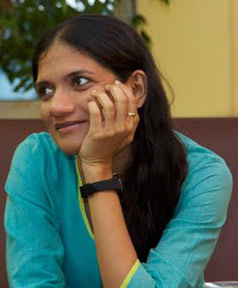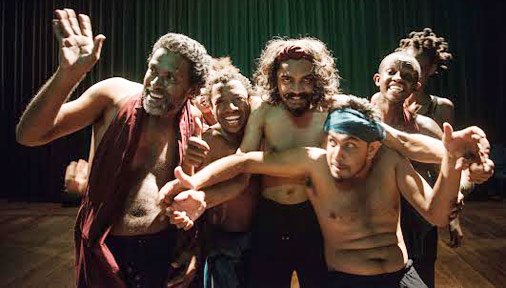‘Dear
Children, Sincerely...’
 Ruwanthie de Chickera talks to Dilshan Boange about her latest
theatre endeavour, which is more than mere drama: Ruwanthie de Chickera talks to Dilshan Boange about her latest
theatre endeavour, which is more than mere drama:
Colombo’s English theatre scene is steadily increasing not only in
respect of the volume of work that gets produced but also in terms of
variety of genre and diversity of form.
The Stages Theatre Group headed by well known theatre practitioner
Ruwanthie de Chickera, has in the past proved its mettle of offering
theatre productions with meaningful themes bound to socio-political
concerns, while also presenting appreciable merits in entertainment
value. ‘Dear Children, Sincerely…’, their latest creation set to go on
the boards on January 29, 30 and 31 at 7.30 p.m. at the Western Province
Aesthetic Resort (opposite the Planetarium and adjoining the Royal
College Gym).
A collaborative work between Sri Lankan and Rwandan artistes, it is
certain to offer some novelty to theatregoers.
I had the opportunity to pose a few questions to the directress
Ruwanthie de Chickera amidst her demanding rehearsal schedule to get
some insights about a few aspects related to the play’s reception
overseas and what may be expected as it goes on the boards here.
Q: ‘Dear Children, Sincerely’ was first staged in Rwanda. How
was the reception from that audience?
A: We staged it in July 2015 in their capital city Kigali. It
was for the theatre festival – ‘Ubumuntu’ – which means ‘in the name of
humanity’. It was a festival which was more than just a series of
performances. In many ways it examined the heights and lows of humanity
– how much people can rise to, how low they can stoop to. We performed
at the Genocide Memorial Centre in an open air theatre to an audience of
about 3000 people. Beyond our immediate festival audience were people on
the streets of Rwanda who had stopped and were just watching us. It was
very special.
 The
reception was phenomenal. Rwandan history is so devastating that it’s
very difficult to address it through the arts. However, I think our
distance from it helped us craft this experience into art. And this had
a massive impact on our audience. The
reception was phenomenal. Rwandan history is so devastating that it’s
very difficult to address it through the arts. However, I think our
distance from it helped us craft this experience into art. And this had
a massive impact on our audience.
The Rwandans were also deeply appreciative of the insights into Sri
Lankan history and people that they received through the play. The
comparison between the histories of these two countries, though not
obvious, is fascinating.
Q: How big a production is this, cost wise, being an
international collaboration between artistes from Rwanda and Stages
Theatre Group?
A: This didn’t start off as an international project. It
started off very small. And then it grew - first conceptually and then
physically as well. Our approach has always been that if we can’t find
the money to do any of this, we would just not do it.
The essence of the project and the heart of it are still very local.
The international element adds insight and complexity and colour in
terms of performance and storytelling.
In other words, we took it a step at a time, found most of the money
little by little. We are still looking for more money to cover the show,
by the way.
Q: Have there been any changes made to what will be performed
here from the production done at the Ubumuntu Arts Festival?
 A:
Yes of course. I am never able to revisit a production without changing
it. I think this is one of the boons and banes of devised work. There is
always a better and more different way to do something later on. A:
Yes of course. I am never able to revisit a production without changing
it. I think this is one of the boons and banes of devised work. There is
always a better and more different way to do something later on.
Because much of what is devised is based on the unique set of
elements that come together in space and time. So a different place,
different time, and different set of people (actually even one person
changing) alters things substantially. So whatever we felt worked, we
have kept. Everything else we are re-working.
Q: What do you feel would be the response from audiences here
as compared to the audiences for this work in Rwanda?
A: No one judges you like your home audiences. And this is how
it should be. Their expectations of you are the highest, their criticism
of you the harshest.
Anywhere else you are a well meaning foreigner and unless your work
is an utter disaster, you can expect a certain level of kindness that
you never expect from home audiences. |

